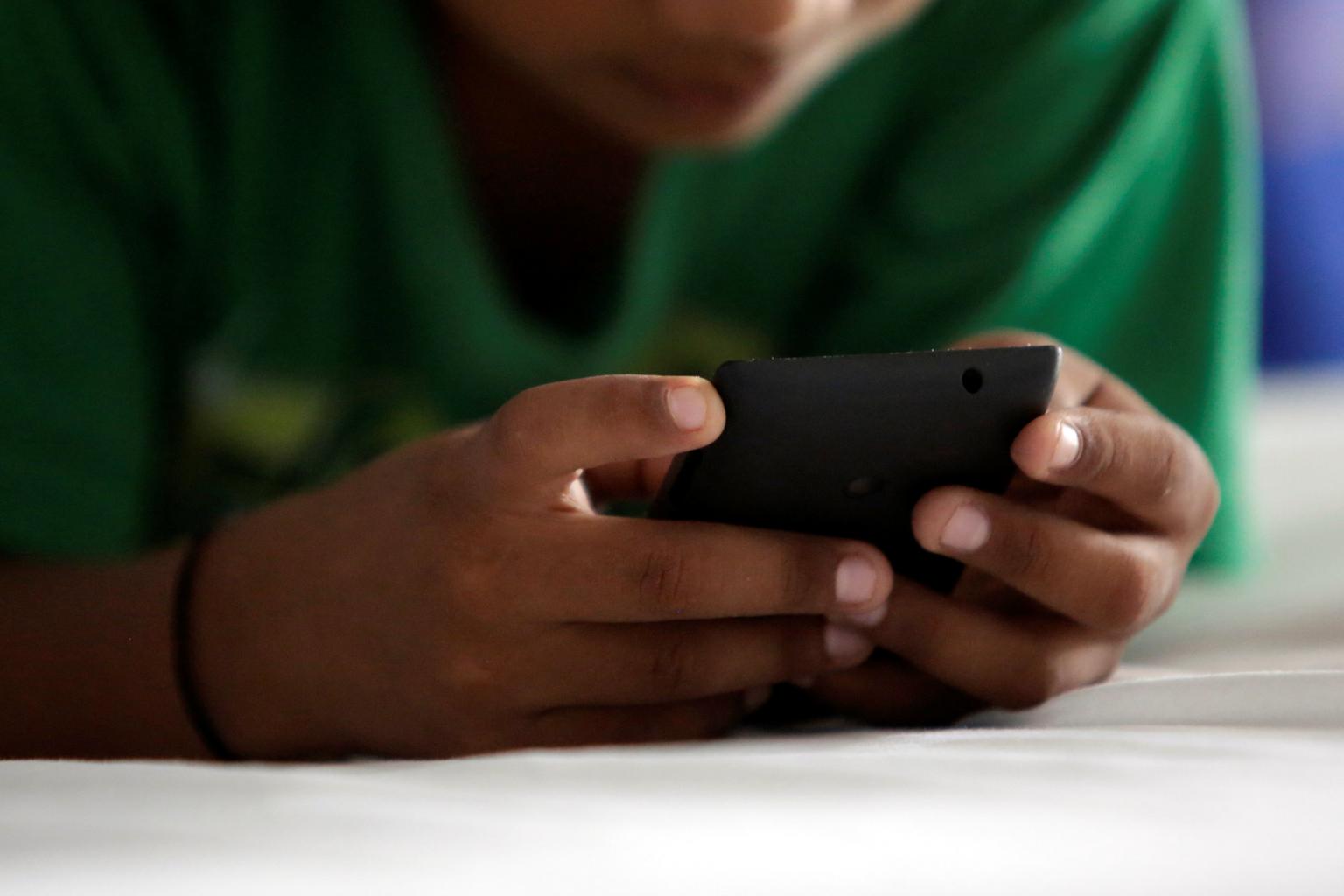The dare game on smartphones and its dark side: China Daily (Asia) contributor
Sign up now: Get insights on Asia's fast-moving developments

A disturbing "suicide challenge" called the Momo game has been making the rounds on social media platforms such as WhatsApp.
PHOTO: REUTERS
Albert Lin
Follow topic:
HONG KONG (CHINA DAILY/ASIA NEWS NETWORK) - Children in general are herd-mentality captives in their hunger for acceptance, and the smartphone has elevated this phenomenon to a heretofore unseen level, and not always for the better.
A disturbing "suicide challenge" called the Momo game has been making the rounds on social media platforms such as WhatsApp.
Game members are "challenged" to communicate with an unknown number that could result in a dare with tragic results.
The death of a 12-year-old girl reportedly may have been linked to the game.
Surveys questioning the overall positive influence of smartphones on users are not new.
But the apparent suicide of a child resulting from participating in a mobile game should have all parents, guardians and educators consider much tighter supervision over their charges' online activities, especially so in Hong Kong, which was named the most "connected" place in the world in the 2016 Connected Consumer Index, compiled by the global market-research company GfK.
Increased connectivity, however, does not necessarily mean increased happiness.
Indeed, in the World Happiness Report 2017, published by the UN Sustainable Development Solutions Network, Hong Kong was ranked 71st out of 129.
Although connectivity is not one of the factors assessed in the report, it is clear that our smartphone-dominated culture has not made us any happier.
In fact there is increasing evidence to suggest that it has actually made us unhappier.
In her latest book, iGen, psychologist Jean M. Twenge examines the behavioural patterns of the post-Millennial generation in the United States.
As Twenge emphasises, iGen is the first generation to spend its entire adolescence in the age of the smartphone, and as a result its members are spending significantly less "face time" with their friends.
They are also, in Twenge's words, "at the forefront of the worst mental health crisis in decades".
Since 2011, the year when the proportion of Americans owning a smartphone first approached the 50 per cent mark, rates of teenage depression and suicide have skyrocketed in the US.
This alarming increase in teen unhappiness appears to be related to the increased use of smartphones.
According to the Monitoring the Future survey, a year-on-year study of eighth-, 10th- and 12th-graders in the US that was funded by the National Institute on Drug Abuse, teens who spend more time than average on onscreen activities are more likely to be unhappy, while those who spend more time than average on non-screen activities are more likely to be happy. It's as simple as that.
In Hong Kong, concerns over the effects of excessive smartphone use are also growing, following the August 2017 release of the results of a number of surveys carried out by the Department of Health.
In one survey, 62 per cent of parents of primary and secondary-school students said that their children's daily lives had been adversely affected by spending too much time on onscreen activities.
In another survey, 36 per cent of primary-school students said that they had lost sleep because of onscreen activities, with another 39 per cent saying that their grades had suffered as a result of these activities.
Survey results such as these raise the specter of smartphone addiction - a condition with myriad harmful side effects, both physical (e.g. impaired vision and musculoskeletal problems) and psychosocial (e.g. sleep deprivation and depression).
Social-welfare groups such as the Tung Wah Group of Hospitals and the Hong Kong Christian Service are already reporting a rise in the number of smartphone users approaching them with addiction issues, with online gaming the principle area of concern for males, and online shopping and social media the main problem areas for females.
So what can you do to guard against smartphone addiction?
Fortunately the answer is very simple: just ignore your smartphone from time to time.
When you are in a meeting, for example, leave it in your pocket or handbag. When you go out for dinner, leave it at home. When you go to bed, switch it off. And if that means buying an alarm clock, then so be it - it's a small price to pay for a good night's sleep.
For parents the advice is threefold. First, be a good role model. If you have a healthy relationship with your smartphone, your kids are far less likely to fall into the trap of smartphone addiction. Secondly set clear rules for smartphone use.
According to the Department of Health, the maximum amount of onscreen activity recommended for a primary-school student is two hours a day for recreational purposes.
Last but not least, delay buying a smartphone for your kids as long as possible.
If they really need a mobile phone, then buy them an old model like 2G which I find more than adequate if you couldn't get an older model.
Trust me, it will meet all their legitimate needs as a communication tool, which I thought was still what a mobile phone is primarily for.
The author is a journalist and a former civil servant. China Daily (Asia) is a member of The Straits Times media partner Asia News Network, an alliance of 23 news media entities.

